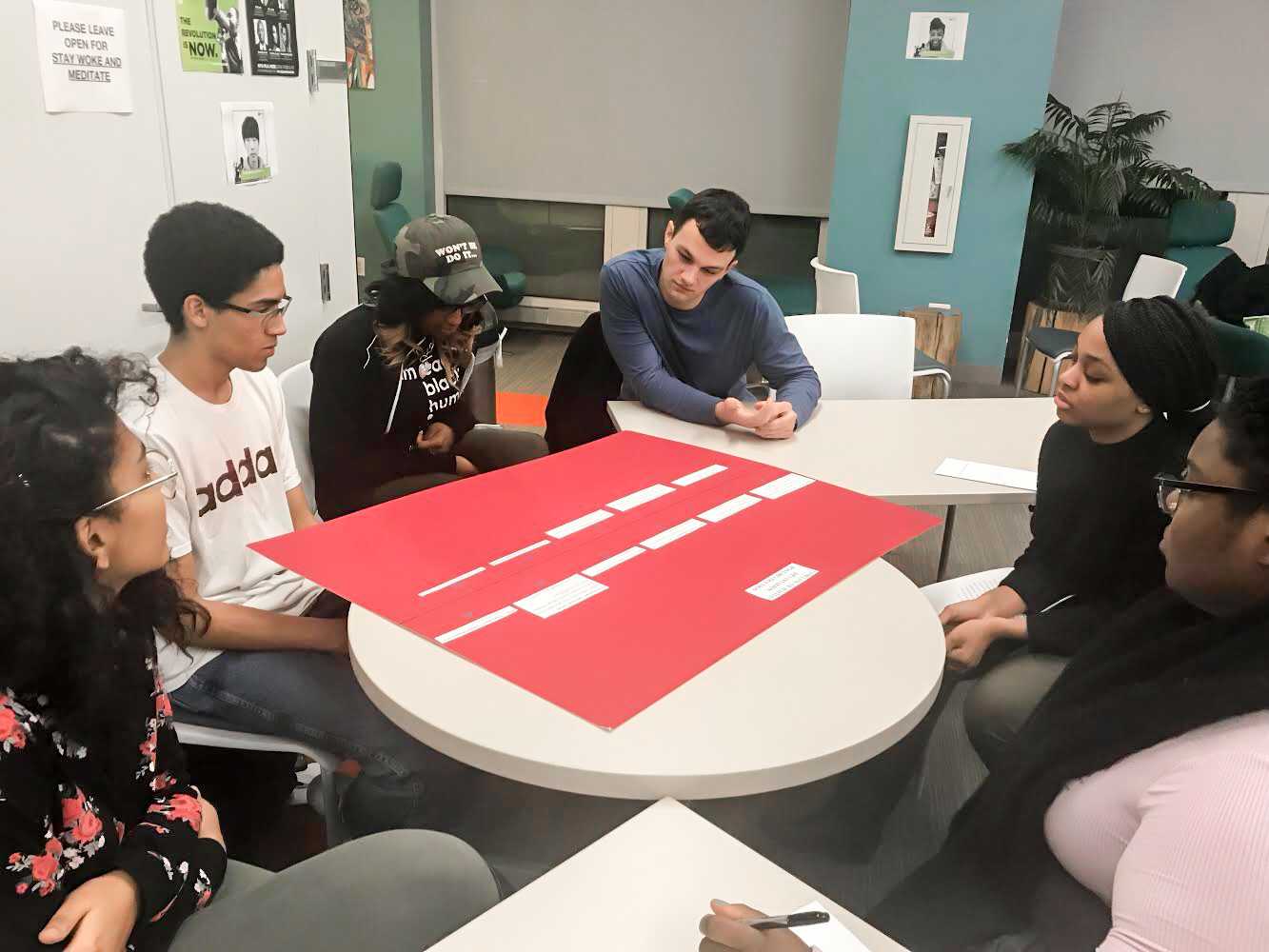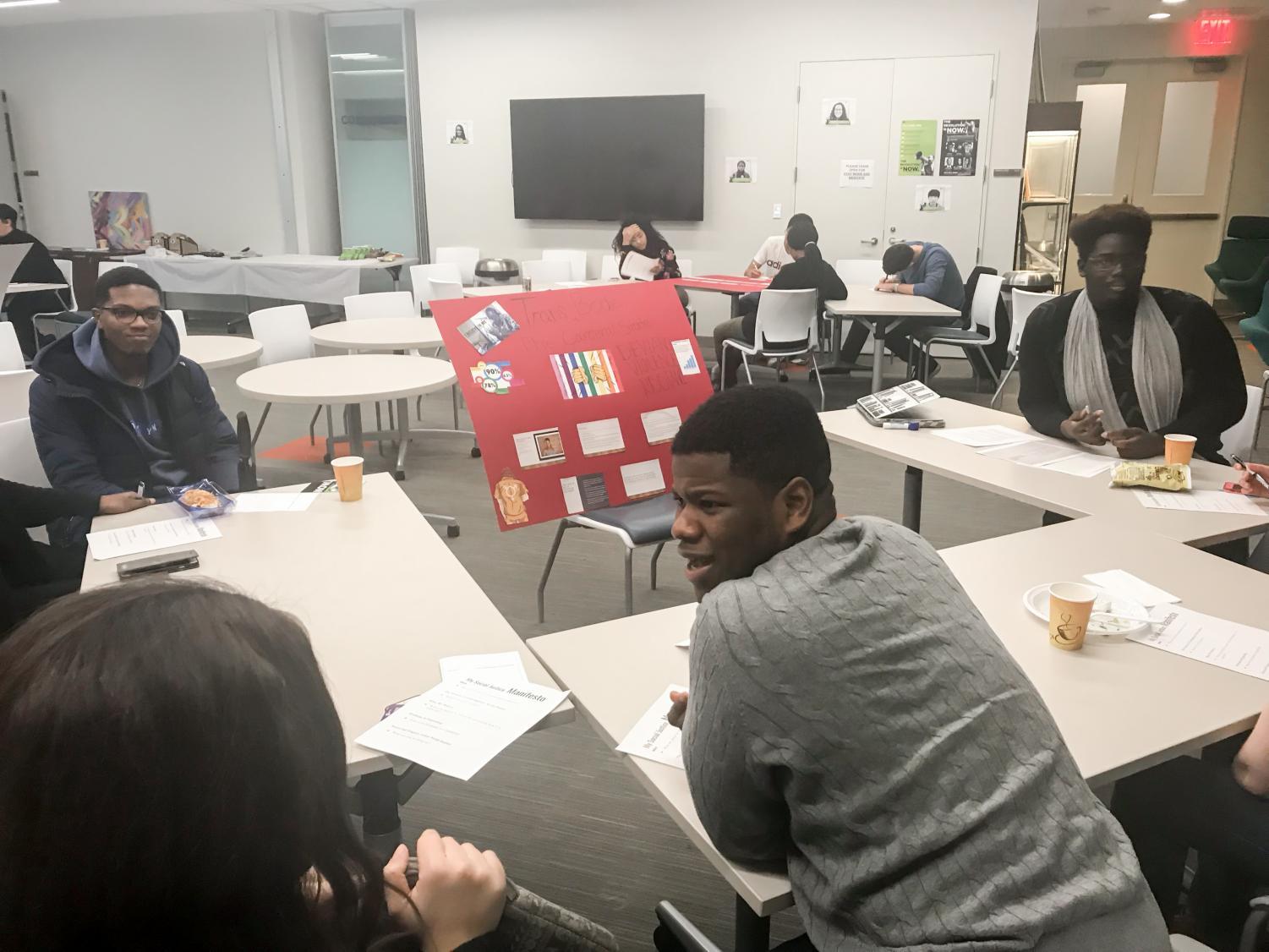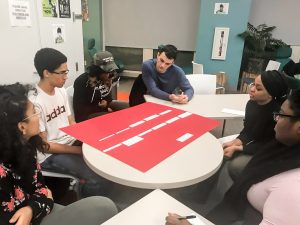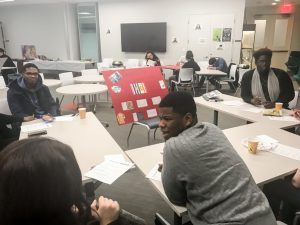NYU Recognizes Today’s Revolutions at 50th MLK Week with Spike Lee
February 12, 2018
During NYU’s 50th annual Martin Luther King Jr. week, social justice activists in fields ranging from journalism to comedy came together to emphasize a singular message — the revolution started by MLK is far from over.
The campus-wide showcase, “The Revolution is Now,” drew a full house Thursday night at the Skirball Center for Performing Arts.
Associate Vice President for Student Affairs and Diversity Initiatives Monroe France serves as chairperson for the MLK Week committee. He said that everyone has a role in making MLK’s dreams for social justice a reality.
“Our hope [is] to inspire the whole university — and especially our students — to determine what their role is in making a difference in the spirit of Martin Luther King and all the social justice trailblazers that have come before us and to continue the work to liberate all of us,” France said in an interview with WSN. “To engage in social change, to engage in our communities to make a difference through intersectional-intergenerational coalition of making a difference here in NYU and also more broadly in our world.”
The event began with a welcome and introduction by France before President Andrew Hamilton took the stage to award the 2018 NYU Martin Luther King, Jr. Humanitarian Award to film director, Tisch School of the Arts professor and alumnus Spike Lee.
“So often when our great people die, they try to sanitize them,” Lee said in his acceptance speech. “The radical stuff, they don’t want you to know about those speeches. They don’t talk about Dr. King being one of the first people to say the Vietnam War was immoral. They don’t focus on the poor people’s campaign. They don’t talk about why he was in Memphis when he got assassinated. He was there for the sanitation men, brothers who were on strike.”
Lee ended his speech with a call to action — and to education.
“You all have phones, go to a library over here, get the information and educate yourself,” Lee said. “Don’t go for the okie dokie.”
After Lee’s acceptance speech, NYU alumna, musician, poet, activist and educator Amy León awed the audience with her combination of soft piano and powerful vocals. Her musical performance was immediately followed by the main discussion among three panelists prominent in today’s activism.
Journalist and television commentator Clay Cane asked panelists Charles Blow, Amanda Seales and Munroe Bergdorf about experiences and struggles in their activism through their respective mediums, along with their thoughts on how social media, liberal racism and today’s political landscape affect modern revolution.
The discussion ended by stressing the responsibility of younger generations to continue King’s work by actively carrying on the revolution.
“Our hope is that, from participating in programs, engaging in dialogue, from the interactions that we have throughout the week that people really are motivated to show up and to determine what their role is helping us to find liberation for all people,” France said to WSN. “Especially for those that are most marginalized throughout our society and across the globe.”
Another MLK week program, “Forgotten. Remembered. Reimagined,” was designed to allow students to do just that.
The event was hosted in the NYU Center for Multicultural Education and Programs on Wednesday. This roundtable discussion analyzed past revolutions in an attempt to contextualize those of the present day.
Before the discussion started, students were encouraged to define revolution in their own words before reading their definitions aloud to compare everyone’s different interpretations. Some definitions were as simple as “change” and “commitment” while others spoke of drawing power through a collective group or through “kinetic energy”— the power of movement.
Students were then divided into three groups that focused on either the Haitian revolution, the revolution of queer culture or the revolution of indigenous land resistance. In each of these circles, one of the MLK Week committee members gave a brief history of the particular revolution, and students explored its obstacles, outcomes and significance. After these individual discussions, everyone reconvened to talk about what they learned.
A recurring theme in the debrief was that revolution requires shifting power from the oppressors to the revolutionists, often through the use of force. Secondly, revolution fundamentally requires perseverance, commitment and determination.
At the end of the discussion, students were encouraged to apply what they had learned in the context of those specific revolutions to current social issues, such as gentrification, sexual assault and uneven distribution of resources.
Steinhardt graduate student and CMEP staff member Danialie Fertile challenged all who attended to think pragmatically, not just academically, about the implications of the event.
“How can we connect these conversations to see that it’s bigger than the communities that we’re in?” Fertile said. “How do we zoom out and say ‘I’m not the only one experiencing this and I’m more powerful with another group if I recognize that they also need help?’”
A version of this article appeared in the Monday, Feb. 12 print edition. Email Alesha Bradford at [email protected].



























































































































































